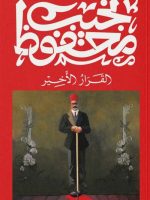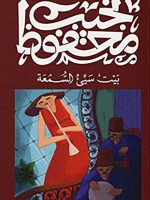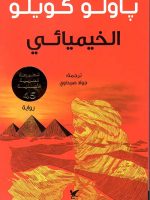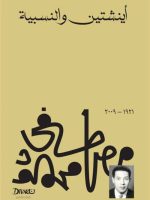The first novel in Mahfouz’s historical trilogy, and also his first to be widely circulated. It revolves around King Khufu, during the construction of the Great Pyramid, who hears a prophecy from the magician Didi that he will be the last king of the family to rule Egypt, and that a child born in a priest’s village will rule after him. Khufu leads a campaign to eliminate the child. However, news reaches the priest, who smuggles his son and his wife to a remote location. The pharaoh arrives at the priest’s house and kills another child born on the same day.
Fate’s Absurdity
د.ا6.00
A philosophical novel that explores man’s struggle with fate through a symbolic story set in the time of the pharaohs.
Available on backorder
| Categories: | Literature, Novels, World literature, Prose literature, Philosophy |
|---|---|
| Tags: | literature, Novels, philosophy, World Literature |
| Author | |
|---|---|
| Year | |
| Publisher | Dar Al-Shorouk |
You may also like…
-
The Black Cat Tavern
د.ا6.00A collection of short stories that sheds light on Egyptian reality through marginal characters, revealing the inner struggles of man in the face of life and society.
-
The Final Decision
د.ا6.00A philosophical novel that addresses issues of life, death, and fateful decisions, through a personal experience in which questions of existence and destiny intertwine.
-
God’s World
د.ا6.00A philosophical collection of short stories that explores human questions about fate, faith, and life through intensely symbolic scenes.
-
A House of Infamous
د.ا6.00A social novel that sheds light on the social conditions and psychological challenges facing members of society within a framework of suspense and drama.
Related products
-
The hat and the prophet
د.ا2.13Ghassan Kanafani is a Palestinian novelist, storyteller, and journalist, and is considered one of the most famous Arab writers and journalists in the twentieth century. His literary works, including novels and short stories, were deeply rooted in Arab and Palestinian culture
د.ا3.55 -
Pulse
د.ا12.00A novel that sheds light on the internal conflict between mind and heart, and addresses themes of love, sacrifice, and the search for self in a world filled with challenges.
-
About men and guns
د.ا2.13Ghassan Kanafani is a Palestinian novelist, storyteller, and journalist, and is considered one of the most famous Arab writers and journalists in the twentieth century. His literary works, including novels and short stories, were deeply rooted in Arab and Palestinian culture
د.ا3.55 -
The other thing
د.ا2.13Ghassan Kanafani is a Palestinian novelist, storyteller, and journalist, and is considered one of the most famous Arab writers and journalists in the twentieth century. His literary works, including novels and short stories, were deeply rooted in Arab and Palestinian culture
د.ا3.55 -
The Alchemist
د.ا4.97The Alchemist (Portuguese: O Alquimista) is a novel by Brazilian author Paulo Coelho which was first published in 1988. Originally written in Portuguese, it became a widely translated international bestseller. The story follows the shepherd boy Santiago in his journey across North Africa to the Egyptian pyramids after he dreams of finding treasure there.
د.ا7.10 -
Bridge forever
د.ا2.13Ghassan Kanafani is a Palestinian novelist, storyteller, and journalist, and is considered one of the most famous Arab writers and journalists in the twentieth century. His literary works, including novels and short stories, were deeply rooted in Arab and Palestinian culture
د.ا3.55 -
The Da Vinci Code
د.ا8.52- The Da Vinci Code is a 2003 mystery thriller novel by Dan Brown. It is Brown’s second novel to include the character Robert Langdon: the first was his 2000 novel Angels & Demons. The Da Vinci Code follows symbologist Langdon and cryptologist Sophie Neveu after a murder in the Louvre Museum in Paris entangles them in a dispute between the Priory of Sion and Opus Dei over the possibility of Jesus and Mary Magdalene having had a child together.
د.ا10.65 -
Anichatin and relativity
د.ا2.13In this book, its author, Dr. Mustafa Mahmoud, tries in his style known as ease and extreme logic in understanding the theory of relativity of the physicist Albert Einstein so that it suits the understanding and perception of the general public, and in a strong objection to limiting information to a few scientists under the pretext of depth and specialization, which may lead to the isolation of science, supporting in his book what Einstein himself called for to spread science among people, Einstein hated scientific fortune-telling and fabrication of mystery, claim, and magnification, and he used to say that the truth Never mind.
د.ا4.26













Be the first to review “Fate’s Absurdity”